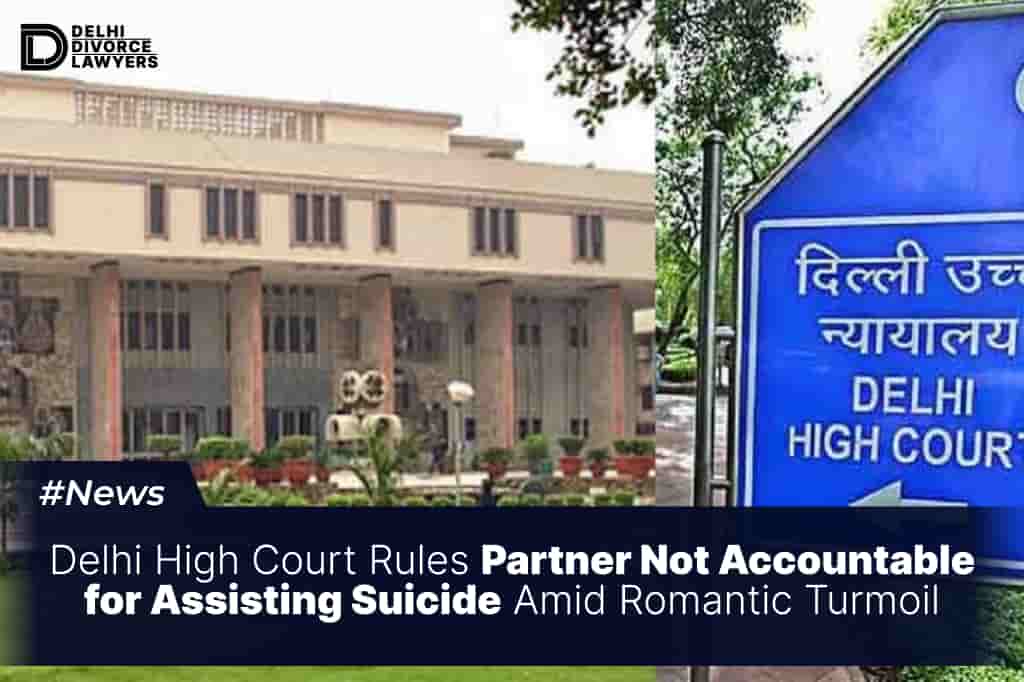The Court further said that if a student fails an exam or a client loses a case and commits suicide for such reasons, the examiner or the lawyer cannot be held liable either for suicide abetment.
The Delhi High Court recently underscored that when a romantic partner resorts to suicide as a result of relationship difficulties, the partner cannot be deemed culpable for facilitating the act. Similarly, Justice Amit Mahajan emphasized that if a student ends their life due to academic setbacks or a client does so following an adverse court judgment, neither the educator nor the attorney can be held accountable.
“If a lover commits suicide due to love failure, if a student commits suicide because of his poor performance in the examination, a client commits suicide because his case is dismissed, the lady, examiner, lawyer respectively cannot be held to have abetted the commission of suicide. For the wrong decision taken by a man of weak or frail mentality, another person cannot be blamed as having abetted his committing suicide,” the Court stressed.
The Court rendered these remarks while granting anticipatory bail to a man and a woman accused of abetting suicide in connection with the death of a young man. The woman, who had a romantic involvement with the deceased, tragically ended her own life upon witnessing the two accused individuals together. Allegations emerged that the accused duo influenced the deceased by insinuating they were involved in intimate activities and contemplating marriage imminently. Moreover, they purportedly belittled the deceased’s masculinity, leading him to contemplate suicide or risk the circulation of his private images, taken through his damaged car window, online with derogatory annotations. Justice Mahajan, after scrutinizing the evidence, noted from the WhatsApp exchanges submitted that the deceased frequently resorted to threatening suicide whenever the woman declined communication with him, indicating a fragile disposition.
“It is correct that the deceased had written the name of the applicants in suicide note, but, in the opinion of this Court, there is nothing mentioned, as to the nature of threats in the alleged suicide note written by deceased of such an alarming proportion so as to drive a ‘normal person’ to contemplate suicide,” the Court noted.
Additionally, the court remarked that the purported ridicule by the defendants directed at the deceased concerning his terminated romantic association with the woman did not seem to fulfill the provocation criteria necessary for abetment of suicide under Section 306 of the Indian Penal Code (IPC). Consequently, the court proceeded to approve anticipatory bail for both defendants.

